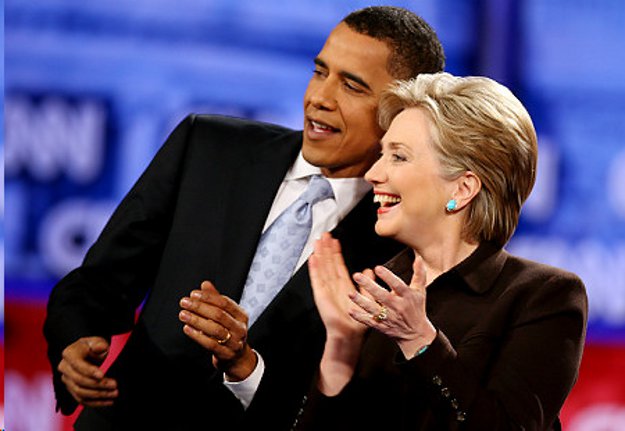No, Superdelegates Are Not Stealing the Presidential Election

From Punditwire.com
Tell me if this sounds familiar: An insurgent, scrappy candidate from outside the party launches an unexpectedly strong campaign and the narrative shifts to how the party might steal the nomination from that candidate.
Readers would be excused for thinking I’m writing about Donald Trump’s unexpected triumph in the 2016 Republican nomination battle, but I’m not: I’m writing about Bernie Sanders and the bizarre infatuation with Democratic superdelegates stealing the election.
H.A. Goodman wrote about it in Huffington Post shortly after the New Hampshire primary. So did MSNBC. Dennis Miller is still telling hisFacebook followers that the game is rigged.
With the way the press portrays the race, it’s not an unreasonable assertion.
Politico, Bloomberg, CNN, NBC, and countless other outlets present Democratic delegate counts that include superdelegates. The Daily Caller, The Hill, and US News all ran stories after Bernie Sanders’ overwhelming win that stated Clinton would get more delegates out of New Hampshire because the superdelegates had broken for Clinton.
There’s only one problem: Superdelegates are not pledged, do not vote until the convention, and have never taken an election away from a candidate who has received the majority of pledged delegates.
Hillary Clinton has not “won” any superdelegates, because (a)there’s no contest to “win” for their votes and (b) delegates have not cast their votes yet, and thus can change their mind at any time.
If Bernie Sanders has a clear victory in the delegate count, the superdelegates will change their minds. They did before, in 2008, when then-Senator Barack Obama beat Hillary Clinton for the nomination.

Superdelegates are not mysterious, hidden figures, manipulating strings behind the scenes. They’re people like Governor John Hickenlooper of Colorado and Senator Cory Booker of New Jersey, who are established politicians who have to answer to the base if they want a future in the party. Defying a clear victory in the delegate count is a poor way to foster goodwill among one’s supporters.
Including superdelegates in delegate counts at this point is irresponsible and paints a muddled view of how the nomination process is shaking out—one that hurts Sanders.
Right now, Sanders faces a rough but not insurmountable deficit of 325 delegates, having captured 828 pledged delegates to Clinton’s 1,153. When superdelegates are foolishly added, that deficit appears to jump to around 800 delegates, and Clinton goes from around 50% of the delegates necessary to secure the nod to about 75%.
If there’s an undecided voter in Pennsylvania who is leaning toward Sanders and she sees an 800 delegate deficit, there’s not a lot of incentive to take time out of her schedule and go vote when the nomination contest is seemingly over.
Painting superdelegates as nefarious figures out to rig an election is not only not true, but is also irresponsible and may very well hurt Sanders far more than the actual superdelegates themselves ever could.
Sanders’ supporters shouldn’t worry about the superdelegates; they should go vote, get their friends and family to vote, and win elections. If that happens, the superdelegates will fall into place.
Different outlets have different superdelegate counts for both Hillary Clinton and Bernie Sanders. This is because these outlets are predicting superdelegate votes based off of endorsements or public statements of support, some of which are stronger than others. Thus, some outlets predict a superdelegate will vote for a candidate while another outlet is less sure, and omits that delegate from the count. This is another reason to be skeptical and I wish the press would not count superdelegates.
From Punditwire.com. This post is a cross-post with Out Of Ink, a Millenial commentary site also edited by PunditWire editor Tod Didier.






























































































































































































































































































































